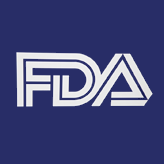Avelumab Gets FDA Approval for Urothelial Carcinoma
The FDA has granted accelerated approval to avelumab (Bavencio) for treating locally advanced or metastatic urothelial carcinoma patients whose disease progressed following treatment with platinum-containing chemotherapy.
Avelumab is the latest in a series of immunotherapy approvals for bladder cancer

The US Food and Drug Administration has granted accelerated approval to avelumab (Bavencio) for treating locally advanced or metastatic urothelial carcinoma patients whose disease progressed on or following treatment with platinum-containing chemotherapy, either in the neoadjuvant or adjuvant setting.
Avelumab also recently received approval for the treatment of Merkel cell carcinoma. This is the third immunotherapy approved for bladder cancer in the past month, following the first-line approval of atezolizumab in cisplatin-ineligible patients and the approval of durvalumab in patients who progressed on or after chemotherapy.
“Once urothelial carcinoma progresses after treatment with chemotherapy, the 5-year survival rate is alarmingly low,” said study investigator Andrea Apolo, MD, of the National Cancer Institute in Bethesda, Maryland, in a press release. “Until recently, there had been limited innovation in urothelial carcinoma, and this approval gives us another treatment to help battle this aggressive disease.”
The study that led to the approval of avelumab was a single-arm trial that enrolled 242 patients with locally advanced or metastatic urothelial carcinoma. Patients included in the study had previously been treated with platinum-based therapy and had either progressed during chemotherapy or within 12 months of treatment.
Patients were treated with 10 mg/kg avelumab, administered intravenously over 60 minutes every 2 weeks until progression or unacceptable toxicity. Prior to each dose of avelumab, patients were given antihistamines and acetaminophen.
The overall response rate to avelumab was 13.3% (95% CI, 9.1%–18.4%) among 30 patients who were followed for at least 13 weeks and 16.1% (95% CI, 10.8%–22.8%) among 26 patients followed for at least 6 months. The median time to response was 2 months; median duration of response has not been reached (range 1.4–17.4 months).
The most common AEs with avelumab (> 20% of patients) were decreased appetite, fatigue, urinary tract infection, infusion-related reactions, musculoskeletal pain, and nausea.
Deaths due to adverse events (AEs) occurred in 6% of patients, and serious AEs occurred in 41% of patients. The most common serious AEs (> 2% of patients) were abdominal pain, dehydration, increased creatinine/renal failure, intestinal obstruction, musculoskeletal pain, pyrexia, urinary tract hemorrhage, and urosepsis.